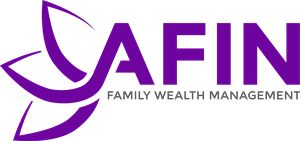
What To Do With My Old Retirement Plan?
What To Do With My Old Retirement Plan?
I Found A New Job, Now What?
The average American changes jobs 12 times in their life, per the Bureau Of Labor Statistics. This brings the age old question, what should I do with my old retirement plan? There are typically 3 options for your old plan: roll it into a private IRA, keep it, or roll it into your new employer’s plan. A qualified plan rollover is a transfer of assets from one retirement account to another. This can be done when you leave a job, retire, or experience another life event that affects your retirement planning. In this blog post, we will discuss the different types of qualified plan rollovers and how they can benefit you!
Rollover of a pension plan:
When leaving a job with a pension retirement plan, typically people will either take the pension payout or roll over their vested balance into a self-directed IRA. Both methods have their benefits and drawbacks. The dilemma to consider when debating rolling over a pension is guaranteed payout vs a bigger potential return. A pension payout is typically done in 2 forms: income per month for the rest of your life or a lump sum payment. Having a guaranteed income per month provides financial stability for the retirement years. However, a pension is essentially an annuity that may have limited performance compared with a self directed IRA which has access to more funds. A self directed IRA will allow a person to invest the money into an allocation that specifically suits their investment style, as well as, into funds that can potentially offer a better return. Also, if someone wants to leave money to their estate, an IRA will allow you to name beneficiaries to receive the remaining balance of the account at the end of your life. Things to consider when deciding to roll over a pension or take the payout: your age, expected payout per month, and other benefits (I.e., health insurance) that are included with your pension.
Rollover of a 401(k) plan:
If you have a 401(K) plan through your employer, you can either rollover the assets into a self directed IRA, leave the money in the current 401(K), or roll it into your new employer’s 401(K). Keeping money in a 401(K) (whether the current 401(K) or your new employer’s) is a set it and forget it strategy for someone who doesn’t want to continually manage their funds. Typically money in the 401(K) will be invested in a target to date fund which has a set date for retirement (i.e. 2030) and the fund automatically rebalances on set dates to accommodate for the projected retirement date. However, leaving the money in a target to date fund, may compromise returns and leave you little control over how your assets are managed. On the other hand, a self-directed IRA will give you the option to choose from stocks, bonds, mutual funds, and ETF's, to name a few. It also gives you the ability to consolidate your retirement accounts, which can make things simpler for estate planning and when it comes time to take distributions. When deciding whether to roll over a 401(K), you will want to consider: the fees associated with the plan, the retirement plan options of your new employer, and your investment style.
Rollover of a 403b plan:
403b plans are set up through a public school system or a tax-exempt organization as described in IRS code section 501(c)(3). 403b offers tax incentives while employed and can give someone another retirement plan option to complement a pension or 401K. However, 403b’s generally offer little investment selection which can limit your overall returns. As already mentioned in the previous sections, self-directed IRA’S offer better asset allocation, and bigger selection of funds which can have higher returns. When deciding to rollover a 403b, it is similar to the questions you must ask yourself when rolling over a 401(K): what are the fees associated with the plan, retirement options of your new employer, and your investment style.
If there are questions we can help go over all of your options and help you decide which is right for you. Securities and insurance products are offered through Cetera Investment Services LLC (doing insurance business in CA as CFG STC Insurance Agency LLC), member FINRA/SIPC. Advisory services are offered through Cetera Investment Advisers LLC. Cetera is under separate ownership from any other named entity. For a comprehensive review of your personal situation, always consult with a tax or legal Advisor. Neither Cetera Investment Services, nor any of its representatives may give legal or tax advice.
Before deciding whether to retain assets in a 401(k) or roll over to an IRA, an investor should consider various factors including, but not limited to, investment options, fees and expenses, services, withdrawal penalties, protection from creditors and legal judgments, required minimum distributions and possession of employer stock. Please view the Investor Alerts section of the FINRA website for additional information.
Matt Butler
Investment Executive
AFIN Family Wealth Management
1220 Kensington Rd, Suite 220, Oak Brook, IL 60523
Direct: 630-686-3267 Main: 630-686-1463
mbutler@afinwealth.com www.afinwealth.com

